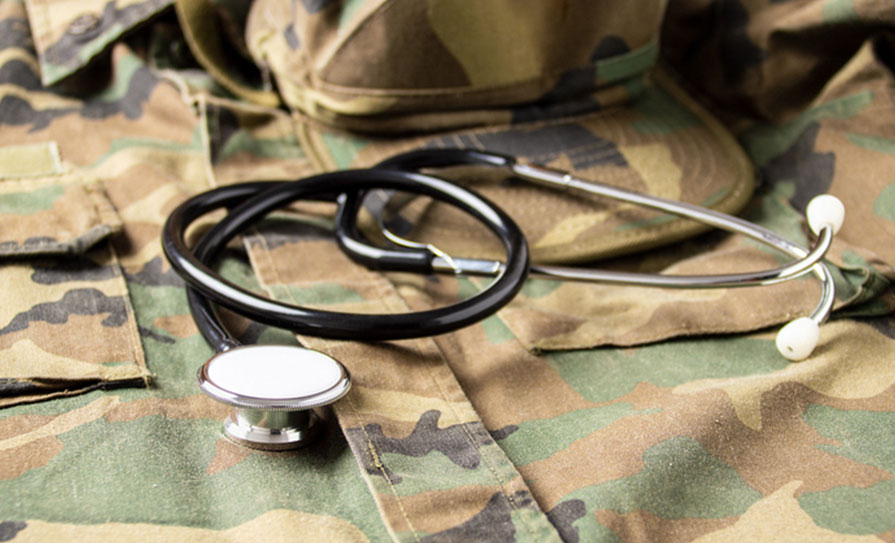
A new book tells the many stories of Irish medical personnel who served in the Second World War
Whether it was dispensary doctors doing house calls on horseback in the middle of a typhoid epidemic or Irish medics on the frontline during wartime, I have great admiration for their fortitude. I’m always on the lookout for books that describe the efforts of these types of doctors. Aidan MacCarthy’s memoir, A Doctor’s War, is a standout of the genre. He was interned in a prisoner of war (POW) camp in Nagasaki on mainland Japan.
Dr MacCarthy provided medical care to his fellow POWs under the most difficult circumstances. But it is his description of the atomic bomb, dropped on Nagasaki on 9 August 1945, that leaves an indelible mark. He and his colleagues only survived because they were some distance underground, about 1,600 metres from the epicentre of the nuclear explosion. When they crawled out of their shelter, “the sight that greeted us halted us in our tracks. As we slowly surveyed the scene around us, we became aware that the camp had to all intents and purposes disappeared…. Those people still on their feet ran around in circles, hand pressed to their blinded eyes or holding the flesh that hung in tatters from their faces or arms.”
“But the most frightening of all was the lack of sunlight – in contrast to the bright August sunshine we had left a few minutes earlier, there was now a kind of twilight. We all genuinely thought, for some time, that this was the end of the world.”
More recently, I came across Irish Doctors in the Second World War. Published by Merrion Press, it includes a meticulously compiled roll of honour of all the Irish doctors who risked their lives making a vital contribution, primarily as members of the Royal Army Medical Corps (RAMC).
The authors have identified over 2,000 Irish doctors who served in the Second World War. However, they reckon even their painstaking research does not include the full contribution of the Irish medical body.
In terms of the medical schools where they received their education, some 736 graduates of Queen’s University Belfast and 637 graduates of Trinity College Dublin served in the Allied Forces during the War. University College Dublin was the alma mater of 198 medical graduates, closely followed by the RCSI with 188. Some 141 University College Cork doctors served, with 48 coming from the University of Galway.
Historically, graduates of Irish medical colleges were too numerous to all find positions in the Irish health system and so emigrating to Britain or its colonies was a well-trodden path to employment. However, with the outbreak of war in September 1939, many Irish civilian doctors already working in Britain, as well as newly-minted graduates from Ireland, were absorbed into the military – a pattern that was to continue for the duration of the war.
This well-illustrated book contains a number of MASH-like photos: A casualty’s leg being operated on in the open air in Burma; and medical officer Captain Parfitt and an orderly administering an emergency plasma transfusion to a seriously wounded soldier outside a tented field dressing unit near Oostmalle in Belgium in October 1944.
Some of the most difficult experiences were those endured by Irish doctors in the Far East: When the Japanese captured Singapore their troops went through the first floor of the Alexandra Military Hospital and bayoneted every person there. Next they entered the operating room, where a soldier was undergoing an operation. They bayoneted him, the anaesthesiologist, and the surgeon.
Following the fall of Singapore, many prisoners were transferred to camps in Japan. Major Frank Murray, a 1937 Queen’s University Belfast graduate was first interned in the notoriously brutal Changi camp on the island. He was transported to Hokkaido in Japan, where as well as his medical duties, he became the commanding officer of all the prisoners there. This followed the removal of more senior officers to designated POW camps.
The following testimonial is a remarkable tribute to him, both as a commanding officer and camp doctor, signed by some 348 POWs on 6 September 1945, shortly after the surrender of Japan.
Many of us would not be alive at this happy moment but for your care; from the point of view of health all of us owe you more than we can express. You have been an inspiration to everyone and to very many of us a source of spiritual refreshment and courage.
Whatever wider recognition you may, as we hope, ultimately receive, we all, the men of the British Navy, Army, Air Force and Mercantile Marine and the American Army now in this camp want you to know that [it] is with feelings of profound gratitude, affection and respect that we say
God Bless You, Sir.
Authored by Patrick Casey, Kevin Cullen, and retired surgeon Joe Duignan, the book is a powerful tribute to the humanity and indomitable spirit of the many Irish medical personnel who served in the Second World War.





Leave a Reply
You must be logged in to post a comment.